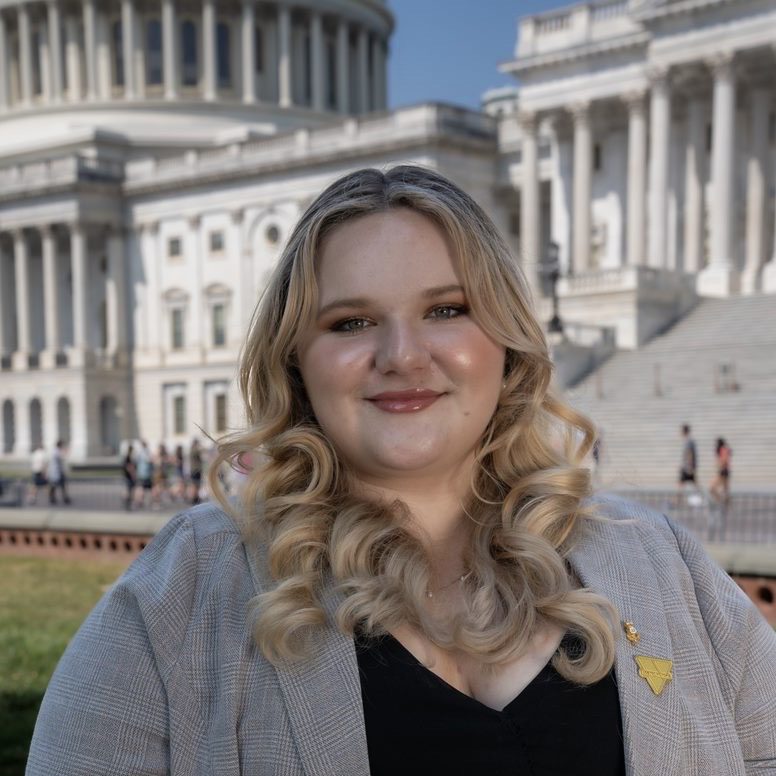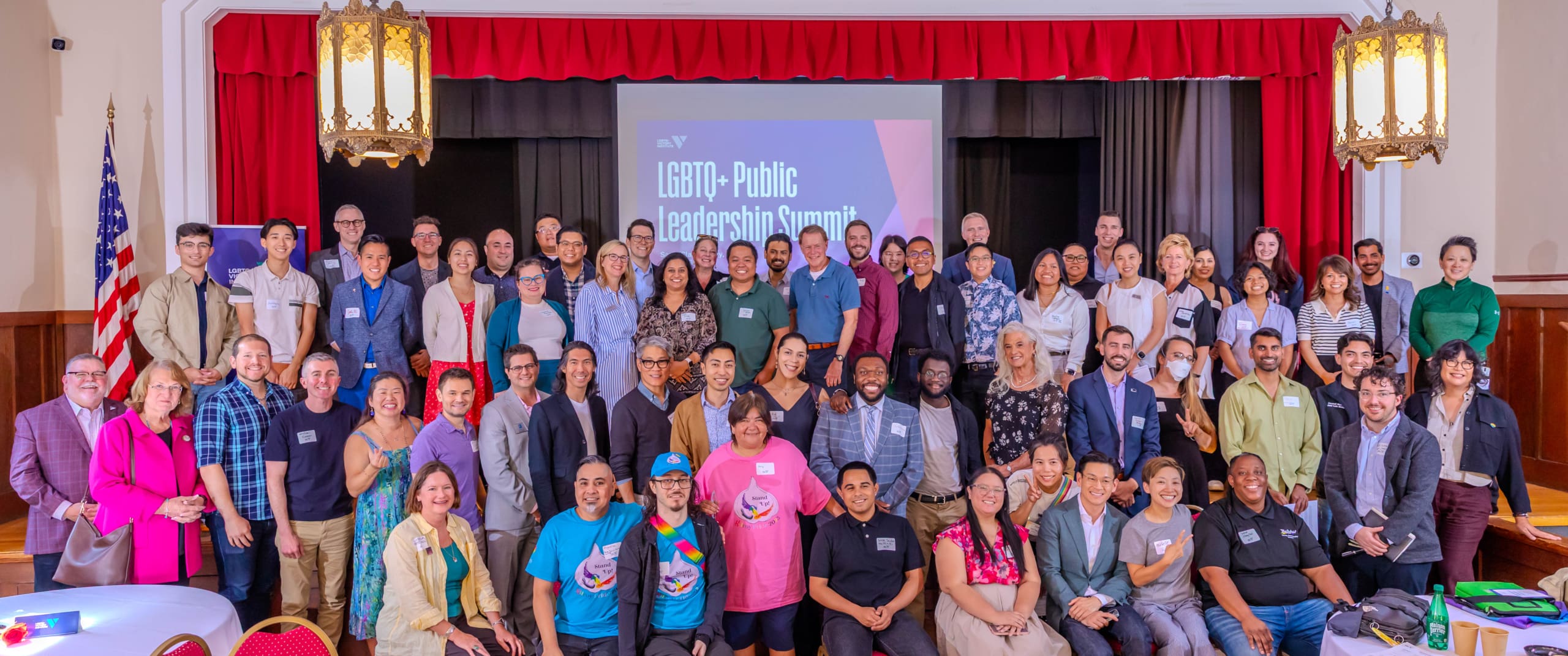
OUT ON THE HILL is the official blog of the Victory Congressional Interns. Views expressed do not necessarily reflect those of LGBTQ+ Victory Institute. Learn more about the internship at victoryinstitute.org/vci.
———————————–
High-low chimes, jet noise, and the sounds of backpacks frantically opening in search of a single piece of gum; those few minutes preceding the exact moment landing gear disappears, when your next expedition officially commences, is a truly communal, excited space of anticipation and wonder. I assert that the 2023 Victory Congressional Intern class is saturated with the same rich, existential wonder.
Congressional internship classes near and far, both in ideology and positionality, also share this excitement. Yet, the Victory Interns soar higher, bright-eyed and thinking forward to the moment they will return to these Congressional hallways or their next empowering adventure. That being said, this was no summer camp. LGBTQ+ rights are under attack in a new wave of violent polarization and brutality. In this moment, we are additionally confronted with the challenges of being definitely proud within the halls of Congress, all while being forced to reckon with the realities of how much intersectional identities are shaping each and every one of our experiences here.
Each time I enter a new workspace, I anticipate curiosity-fueled gazes in the direction of my wheelchair; this cohort was no exception to that recurrent experience. Working with a team of folks who share an identity experience is always rejuvenating in some respects, and challenging in others. Too often, queer spaces, especially professional ones, are exclusive of those who exist outside of the traditional, more palatable margins. The rhetorics of oppression inundate queer “shop talk” as if it is an absolution of one’s inherent participation in the delineation between who’s included and who’s left many paces behind – or down a flight of stairs in some cases. However, this amalgamation of comfortability and experience with intersectionality fosters a community rife with growth, introspection, and mindful politics.
The intersection of my disability, queerness, and Latinidad is central to both my politics and my experiences moving through any space – especially political ones like the Capitol. There were so many unforgettable moments throughout my experience as a Victory Congressional Intern, but two in particular shine brighter than the others in how they challenged both my personal ethic and my conception of what “doing the work” really is:
Within my first few weeks on the Hill, I opened Representative Dingell’s door to find a group of fellow power wheelchair users advocating for co-sponsorship on a disability-centric bill. In that moment, I was overwhelmed with joy; the ear-to-ear smiles exchanged between myself and the constituents, even in the face of policy not yet discussed, was breathtaking. The weight of being the sole visibly disabled person in the office instantly dissipated, and I was overjoyed to learn why they were visiting. The group, from American Disabled for Attendant Programs Today (ADAPT), expressed how excited they were to meet a wheelchair user during their visit to the Hill – and I was able to share how much their organization’s work has positively impacted my own educational and professional experiences in just my twenty-two years of life. I expressed that I wouldn’t have been able to share this space with them as a legislative intern had it not been for the courageous ADAPT activists who led the Capitol Crawl to Access for All of 1990 – with tears welling up in our eyes, we moved onto business, where I was able to actively participate in dialogue surrounding the bill in question.
Similarly impactful, I was able to attend United Spinal’s Roll on Capitol Hill reception for the second year in a row. This event brings some of the most incredible wheelchair-using thinkers and activists together to advocate for legislation that seeks to challenge the status quo of exclusion in the United States. Before the United Spinal Roll on Capitol Hill event, I was able to work on a letter urging action on the part of the Center for Medicaid Services to expand their coverage of wheelchair seat elevation technology for Medicare beneficiaries. During the event, I connected with the advocates who had worked with numerous Representatives and Legislative Assistants on Medicare coverage, often determining our quality of life. To say that experience was empowering and rewarding would be an understatement, and the feelings of camaraderie in that room alone will stick with me for the rest of my personal and professional life.
So, what’s next? Overwhelmed with gratitude, I have so many new lessons and incredible connections I will cherish forever – I am emboldened in my pursuit of liberation and equality on all fronts. The friendships borne of this program are surely lifelong and restorative. As I move into my Senior year at Whitman College, I will apply all of these new experiences to my process of seeking a career which centers access, equity, and belonging – so here’s to what the future holds and to the incredible humans who have had a hand in making this Congressional experience possible.
